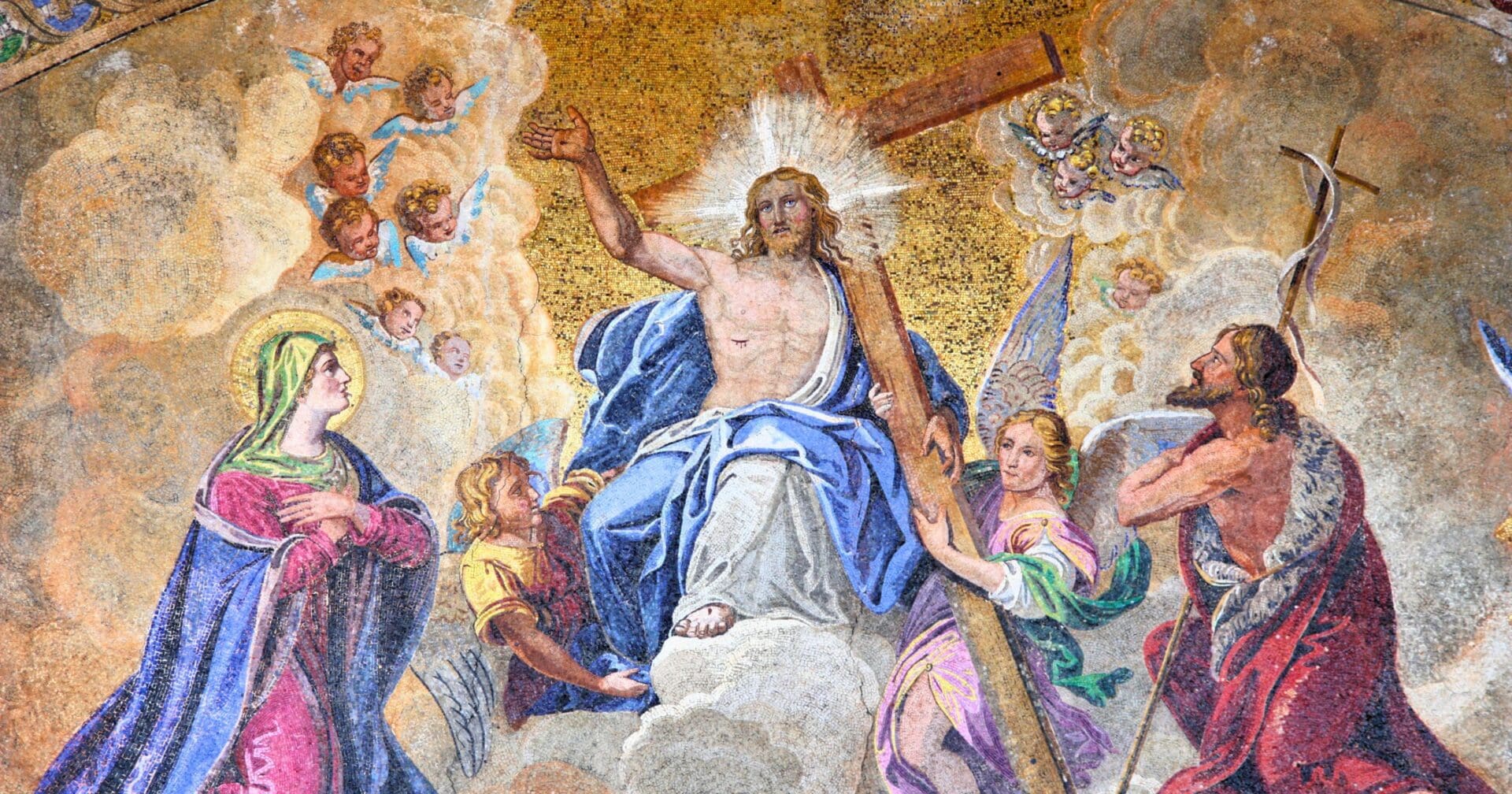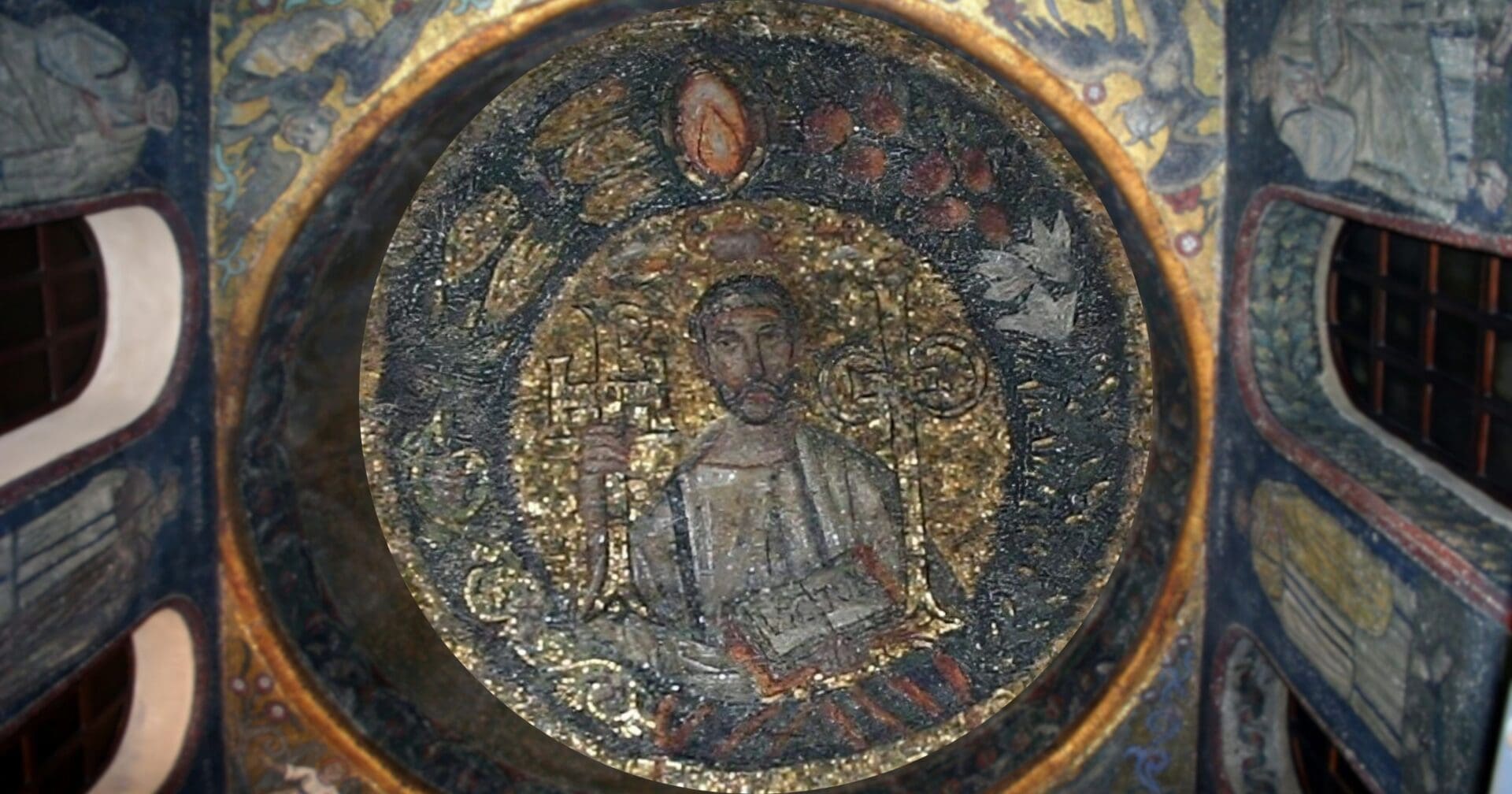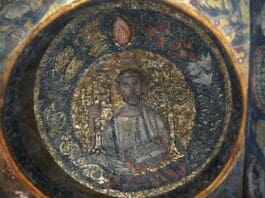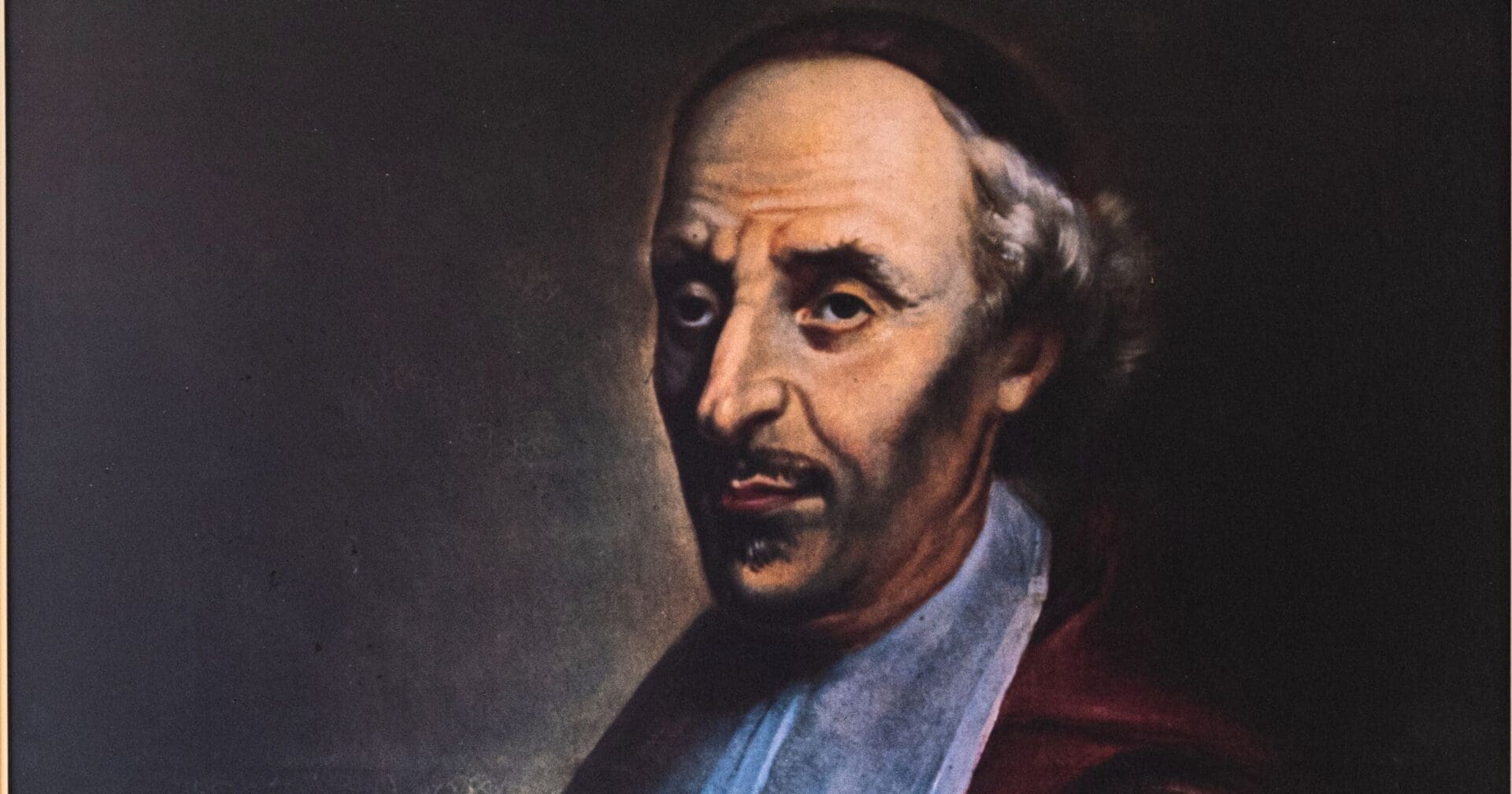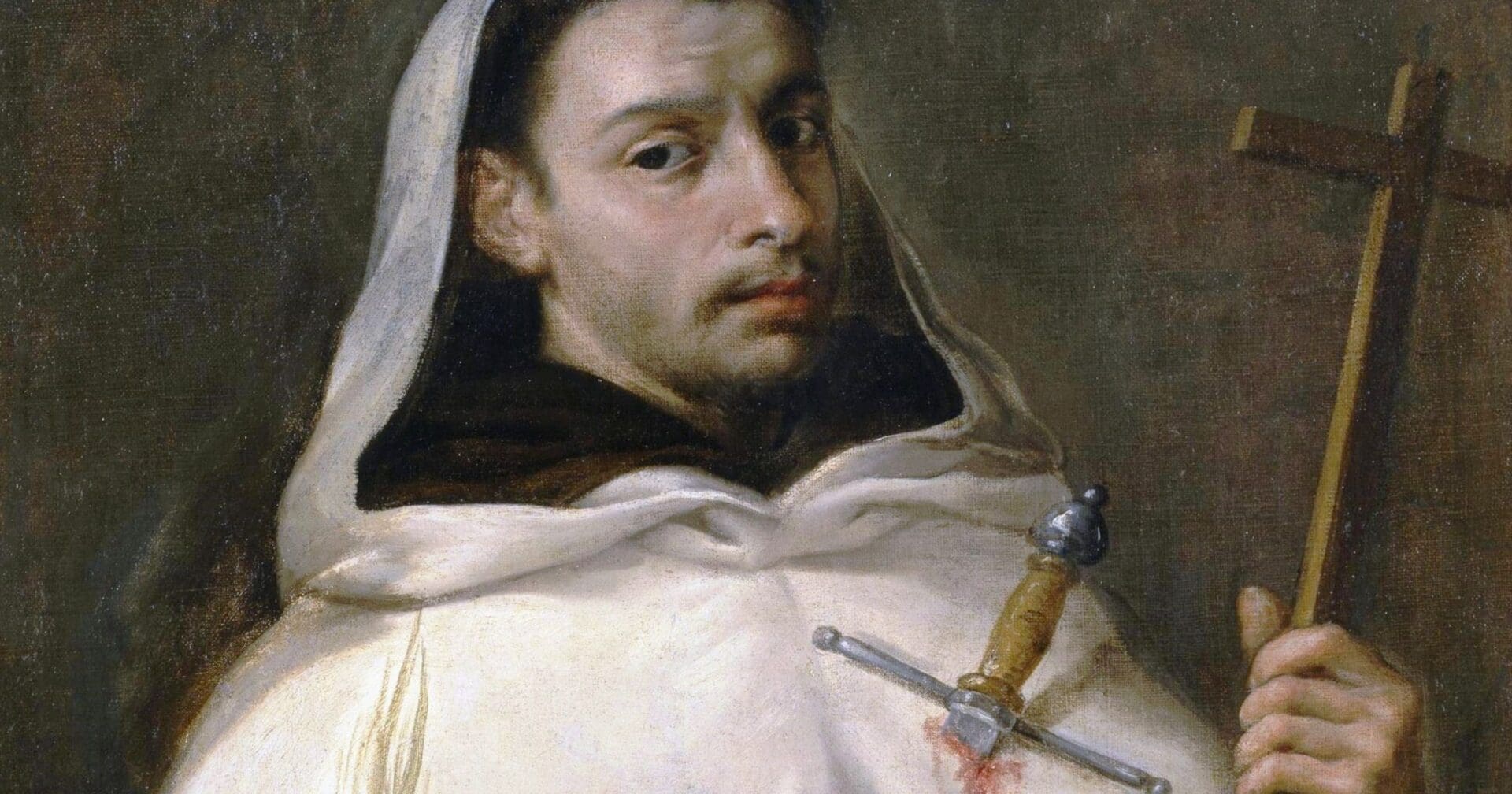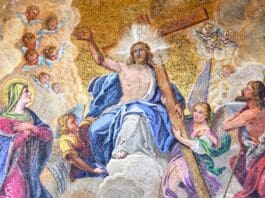
The Ascension of Our Lord, which occurred 40 days after Jesus Christ rose from the dead on Easter Sunday, is the final act of our redemption that Christ began on Good Friday. On this day, the risen Christ, in the sight of His apostles, ascended bodily into Heaven (Luke 24:51; Mark 16:19; Acts 1:9-11).
The reality of the Ascension is so important that the creeds (the basic statements of belief) of Christianity all affirm, in the words of the Apostles’ Creed, that “He ascended into heaven, sits at the right hand of God the Father almighty; from thence He shall come to judge the living and the dead.” The denial of the Ascension is as grave a departure from Christian teaching as is denial of Christ’s Resurrection.
Christ’s bodily Ascension foreshadows our own entrance into Heaven not simply as souls, after our death, but as glorified bodies, after the resurrection of the dead at the Final Judgment. In redeeming mankind, Christ not only offered salvation to our souls but began the restoration of the material world itself to the glory that God intended before Adam’s fall.
The Feast of the Ascension marks the beginning of the first novena, or nine days of prayer. Before His Ascension, Christ promised to send the Holy Spirt to His apostles. Their prayer for the coming of the Holy Spirit, which began on Ascension Thursday, ended with the descent of the Holy Spirit on Pentecost Sunday, ten days later.
The observance of this feast is of great antiquity. Although no documentary evidence of it exists prior to the beginning of the fifth century, St. Augustine says that it is of Apostolic origin, and he speaks of it in a way that shows it was the universal observance of the Church long before his time. Frequent mention of it is made in the writings of St. John Chrysostom, St. Gregory of Nyssa, and in the Constitution of the Apostles. The Pilgrimage of Sylvia (Peregrinatio Etheriae) speaks of the vigil of this feast and of the feast itself, as they were kept in the church built over the grotto in Bethlehem in which Christ was born (Duchesne, Christian Worship, 491-515).
It may be that prior to the fifth century the fact narrated in the Gospels was commemorated in conjunction with the feast of Easter or Pentecost. Some believe that the much-disputed forty-third decree of the Council of Elvira (c. 300) condemning the practice of observing a feast on the fortieth day after Easter and neglecting to keep Pentecost on the fiftieth day, implies that the proper usage of the time was to commemorate the Ascension along with Pentecost. Representations of the mystery are found in diptychs and frescoes dating as early as the fifth century.
Certain customs were connected with the liturgy of this feast, such as the blessing of beans and grapes after the Commemoration of the Dead in the Canon of the Mass, the blessing of first fruits, afterwards done on Rogation Days, the blessing of a candle, the wearing of mitres by deacon and subdeacon, the extinction of the paschal candle, and triumphal processions with torches and banners outside the churches to commemorate the entry of Christ into heaven. There was the English custom of carrying at the head of the procession the banner bearing the device of the lion and at the foot the banner of the dragon, to symbolize the triumph of Christ in His ascension over the evil one. In some churches the scene of the Ascension was vividly reproduced by elevating the figure of Christ above the altar through an opening in the roof of the church. In others, whilst the figure of Christ was made to ascend, that of the devil was made to descend.
In the liturgies generally the day is meant to celebrate the completion of the work of our salvation, the pledge of our glorification with Christ, and His entry into heaven with our human nature glorified.
Photo credit: Tupungato / Shutterstock.com
The post The Solemnity Of The Ascension appeared first on uCatholic.
Daily Reading
Saturday of the Seventh Week of Easter – Mass in the Morning
Reading 1 Acts 28:16-20, 30-31 When he entered Rome, Paul was allowed to live by himself,with the soldier who was guarding him. Three days later he called together the leaders…
Daily Meditation
Mind your Own Journey
Click here for daily readings Jesus told Peter to mind his own journey. This is good advice for all of us. Too many times we base our own sense of…


